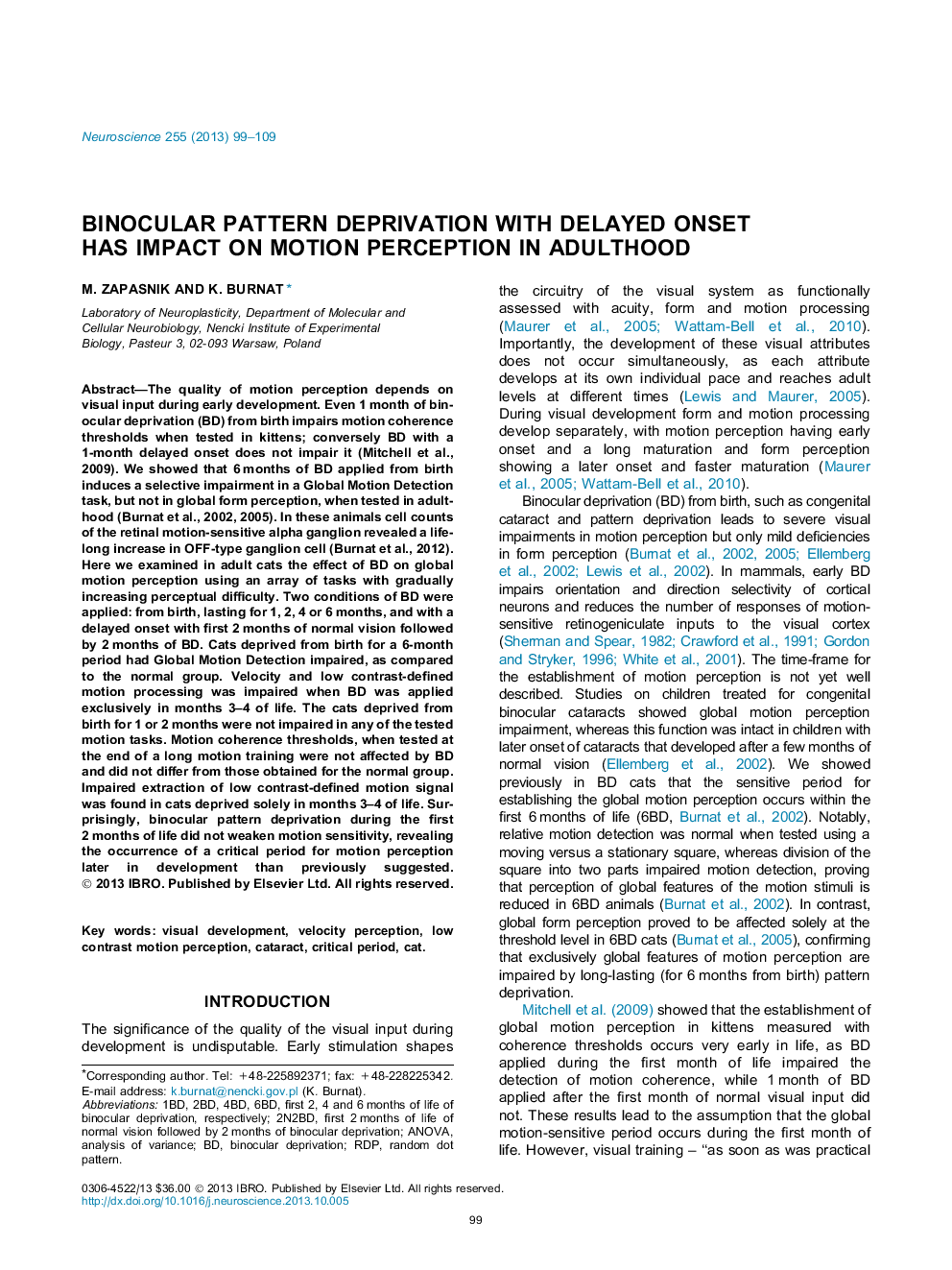| Article ID | Journal | Published Year | Pages | File Type |
|---|---|---|---|---|
| 6274309 | Neuroscience | 2013 | 11 Pages |
Abstract
The quality of motion perception depends on visual input during early development. Even 1Â month of binocular deprivation (BD) from birth impairs motion coherence thresholds when tested in kittens; conversely BD with a 1-month delayed onset does not impair it (Mitchell et al., 2009). We showed that 6Â months of BD applied from birth induces a selective impairment in a Global Motion Detection task, but not in global form perception, when tested in adulthood (Burnat et al., 2002, 2005). In these animals cell counts of the retinal motion-sensitive alpha ganglion revealed a life-long increase in OFF-type ganglion cell (Burnat et al., 2012). Here we examined in adult cats the effect of BD on global motion perception using an array of tasks with gradually increasing perceptual difficulty. Two conditions of BD were applied: from birth, lasting for 1, 2, 4 or 6Â months, and with a delayed onset with first 2Â months of normal vision followed by 2Â months of BD. Cats deprived from birth for a 6-month period had Global Motion Detection impaired, as compared to the normal group. Velocity and low contrast-defined motion processing was impaired when BD was applied exclusively in months 3-4 of life. The cats deprived from birth for 1 or 2Â months were not impaired in any of the tested motion tasks. Motion coherence thresholds, when tested at the end of a long motion training were not affected by BD and did not differ from those obtained for the normal group. Impaired extraction of low contrast-defined motion signal was found in cats deprived solely in months 3-4 of life. Surprisingly, binocular pattern deprivation during the first 2Â months of life did not weaken motion sensitivity, revealing the occurrence of a critical period for motion perception later in development than previously suggested.
Keywords
Related Topics
Life Sciences
Neuroscience
Neuroscience (General)
Authors
M. Zapasnik, K. Burnat,
